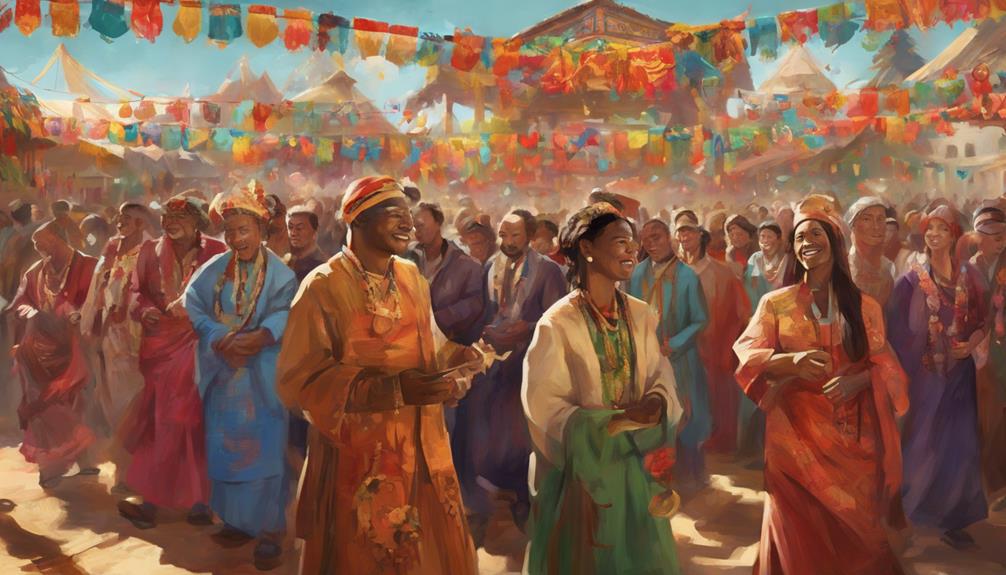The celebration of festivals is a phenomenon deeply ingrained in human societies worldwide, manifesting in a myriad of forms and expressions. Various factors play into the significance of these cultural events, spanning from the preservation of traditions to the creation of economic opportunities and the fostering of social connections. As we unravel the layers of why individuals partake in festivities, we uncover a tapestry of motivations that extend beyond mere merriment. Exploring the underlying reasons behind these communal gatherings unveils a complex interplay of cultural, social, and personal elements that shape our understanding of why festivals hold such a profound place in our lives.
Key Takeaways
- Festivals preserve cultural traditions and values.
- Tribal rituals strengthen community bonds and heritage.
- Festivals boost local economies and tourism.
- Celebrating festivals fosters personal growth and unity.
Cultural Significance
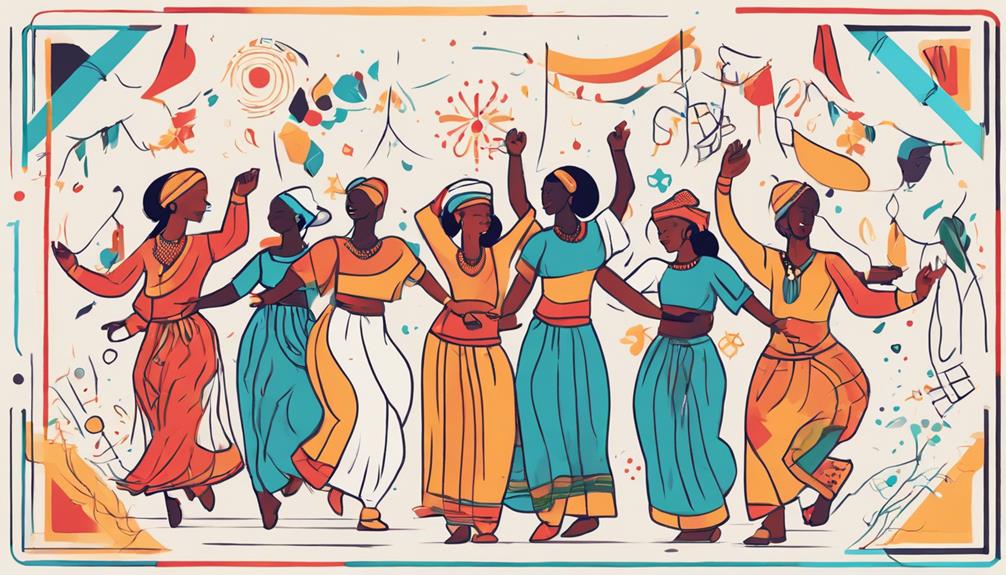
Festivals demonstrate cultural significance by intricately preserving and showcasing traditional practices, rituals, and customs specific to a community or group. These events serve as a platform for communities to uphold their heritage, passing down traditions from one generation to the next. By preserving traditions, festivals ensure that cultural practices remain alive and vibrant, contributing to the overall richness and diversity of society.
Moreover, festivals play a crucial role in showcasing art and music that are unique to a particular community. Through performances, exhibitions, and displays, attendees have the opportunity to appreciate and immerse themselves in the artistic expressions of different cultures. This not only promotes cultural exchange but also fosters a deeper understanding and respect for diverse forms of creativity.
Celebrating heritage is at the core of festivals, as these events often commemorate historical milestones and reflect the values and beliefs of a society. By coming together to honor their shared past, communities strengthen their sense of identity and unity. In essence, festivals serve as a powerful means of preserving cultural heritage, showcasing artistic expressions, and celebrating the rich tapestry of human civilization.
Tribal Traditions
Tribal traditions encompass a rich tapestry of rituals and cultural celebrations that are integral to the identity of indigenous communities. These customs, passed down through oral traditions and practiced during festivals, hold deep significance in preserving the heritage and values of tribal groups. By participating in these time-honored traditions, tribal members not only honor their ancestors but also establish a strong bond with nature and their community.
Tribal Rituals
In indigenous communities, tribal rituals embody profound cultural significance through sacred practices involving ceremonies, dances, and offerings that honor ancestors, spirits, or deities. These rituals play a pivotal role in strengthening community bonds by preserving heritage and fostering a sense of belonging and identity among tribe members. Passed down through generations, tribal traditions are deeply rooted in nature, seasons, and spiritual beliefs, reflecting a harmonious relationship with the environment. Participation in these rituals not only connects individuals to their cultural roots but also instills a deep sense of respect for tradition and history. By engaging in tribal rituals, community members share a collective experience that reinforces their shared values and beliefs, creating a cohesive and interconnected social fabric within the tribe.
Cultural Celebrations
Cultural celebrations within indigenous communities showcase a rich tapestry of ancient customs and rituals deeply intertwined with the fabric of their heritage. These tribal traditions play a vital role in preserving cultural identity and fostering a sense of belonging among community members. Festivals serve as platforms for passing down oral histories, ensuring that the knowledge and wisdom of ancestors are carried forward to future generations. Additionally, these celebrations center around a deep connection with nature, with rituals that honor the land, animals, and ancestral spirits. Through unique art forms, music, dances, and ceremonies, tribal cultural celebrations not only display rich diversity but also strengthen community bonds, promoting unity and cohesion within the group.
Joy and Celebration
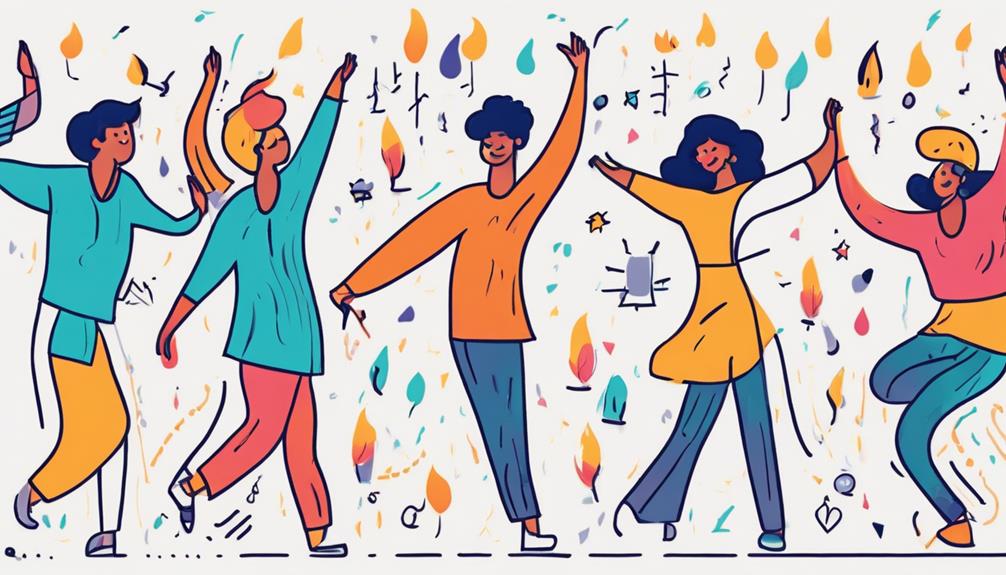
The essence of joy and celebration during festivals lies in the collective experience of spreading happiness and creating lasting memories within communities. Celebrating festivals helps in spreading positivity and fostering a sense of unity among individuals. In the midst of our regular routines, festivals provide a much-needed break, injecting excitement and a festive spirit into our lives. The act of coming together during festivals allows people to strengthen social bonds, enhance relationships, and build a sense of belonging within the community. These special occasions serve as a time for expressing gratitude, love, and appreciation towards one another, further contributing to the overall joy and celebratory atmosphere. By commemorating festivals, individuals not only create memorable experiences but also carry forward traditions and values that are significant to their cultural heritage. The joy experienced during festivals transcends individual happiness, extending to the collective joy shared among all participants, making these celebrations truly special and meaningful.
Economic Impact
A significant aspect to consider when evaluating festivals is their economic impact on local communities and businesses. Festivals have a profound effect on the economy, with millions in revenue generated for local businesses, contributing significantly to the overall economic growth. The economic impact of festivals can be observed through various avenues:
- Boost in Employment Opportunities: The event industry experiences a surge in job opportunities during festival seasons, ranging from event management to hospitality services, creating employment for many individuals in the local community.
- Contribution to Local Economy: Large festivals play a vital role in injecting millions into the economy annually through a wide array of activities and attractions, benefiting local businesses and services.
- Tourist Attraction and Spending: Festivals attract tourists from far and wide, leading to increased spending in the hospitality sector, such as accommodation, restaurants, and transportation services, further enhancing the economic prosperity of the region.
Historical Roots
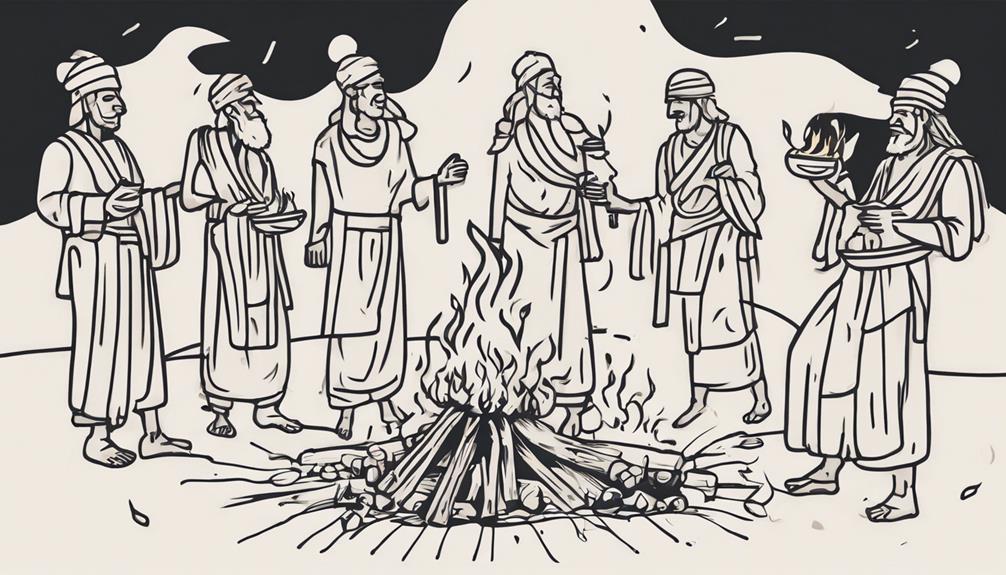
Festivals have deep historical roots, tracing back to ancient civilizations such as Mesopotamia and Egypt. These events were intricately linked to agricultural cycles, celestial occurrences, and religious beliefs. Historical festivals not only marked important moments but also played a significant role in shaping cultural identities and fostering community bonds.
Origin of Festivals
Having ancient roots deeply intertwined with cultural practices and societal beliefs, the origin of festivals reveals a tapestry of historical significance and communal traditions. Festivals originated from:
- Agricultural and Seasonal Rituals: Many festivals have their origins in ancient agricultural practices and seasonal rituals, celebrating bountiful harvests or marking significant celestial events.
- Religious Ceremonies: Historical roots of festivals can be traced back to religious ceremonies honoring deities, ancestors, or commemorating important events in various cultures, forming a connection between spirituality and communal gatherings.
- Cultural Beliefs: The historical roots of festivals reflect cultural beliefs, social norms, and community values, shaping celebratory traditions that have been passed down through generations and continue to evolve in modern times.
Cultural Significance
Cultural significance within festivals emerges prominently through their historical roots deeply embedded in traditional practices and societal beliefs. Festivals serve as a conduit to honor past events, heroes, and deities, reflecting the values and myths cherished by a community. Through celebrating festivals, ancestral customs and rituals are passed down to successive generations, ensuring the preservation of cultural heritage. Many festivals are intricately linked to agricultural cycles, seasons, or celestial occurrences, underscoring the historical connection to nature and the cosmos. These celebrations not only provide a platform to commemorate the past but also offer a lens into the rich tapestry of traditions that have shaped societies over centuries, fostering a sense of continuity and identity.
Personal Connection
Engaging in traditional festivities offers individuals a meaningful avenue to deepen their interpersonal relationships and sense of belonging within their community. Celebrating festivals not only brings joy and excitement but also plays a crucial role in strengthening personal connections. Here are three key ways in which festivals help individuals forge deeper personal connections:
- Shared Experiences: Celebrating festivals allows people to come together with family and friends, creating shared memories and experiences that strengthen their bonds. These shared moments of joy and celebration contribute to the development of stronger relationships.
- Cultural Identity: Festivals provide individuals with an opportunity to connect with their cultural roots and traditions. By participating in these cultural celebrations, individuals can develop a sense of pride in their heritage and build connections with others who share the same cultural background.
- Social Support: Festivals offer a sense of community and belonging, providing individuals with a support system that is essential for overall well-being. Through these communal gatherings, people can find comfort, acceptance, and a sense of unity with others.
Community Spirit
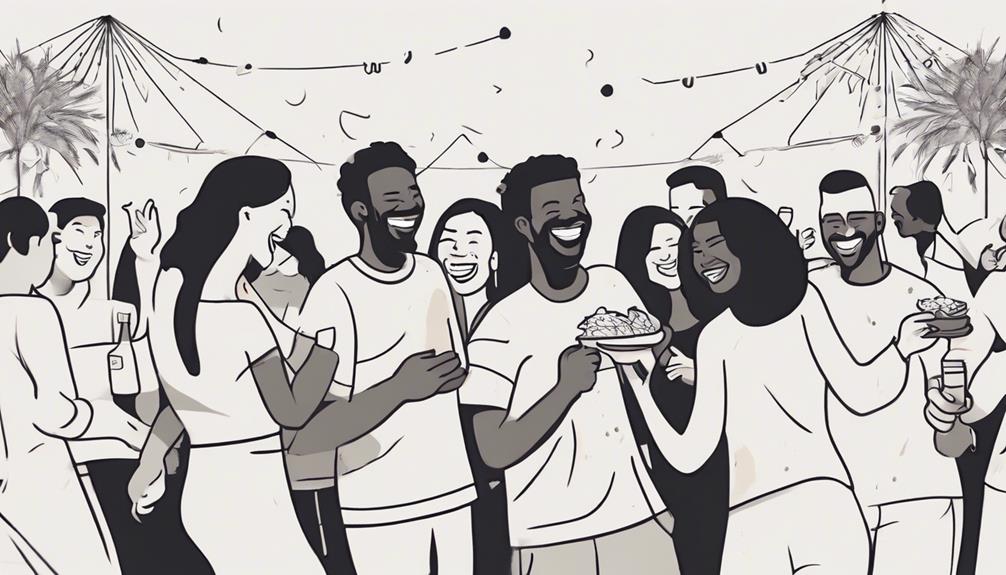
Festivals serve as a catalyst for fostering a shared sense of identity among community members. This shared cultural experience creates a unifying bond that strengthens social cohesion and solidarity. Through traditions and celebrations, communities find a common ground that enhances their collective spirit and sense of belonging.
Unity Through Traditions
Through the preservation and celebration of traditional customs and rituals, communities are able to cultivate a profound sense of unity and cohesion. This unity is essential for fostering a strong community spirit, which is evident during festivals celebrated across the world. Festivals bring people together in shared joy and reverence for their cultural heritage, creating a bond that transcends individual differences. By participating in these age-old traditions, individuals connect with their roots and strengthen their ties to one another. The solidarity and sense of belonging that arise from engaging in shared customs during festivals since time immemorial contribute to the formation of a cohesive and supportive social environment.
Shared Cultural Experiences
Shared cultural experiences during festivals play a pivotal role in fostering a sense of community spirit and interconnectedness among individuals. Festivals throughout the year bring people together, providing a platform for cultural exchange, understanding, and appreciation. Celebrating these events not only honors traditions and heritage but also strengthens the collective identity within communities. Participants sharing these experiences create lasting memories and connections that contribute to a sense of belonging and solidarity. The table below illustrates the significance of shared cultural experiences in festivals:
| Importance of Shared Cultural Experiences in Festivals |
|---|
| Fosters community spirit and interconnectedness |
| Promotes cultural exchange and understanding |
| Strengthens collective identity and sense of belonging |
Social Bonds
By fostering connections and nurturing a sense of community, festivals serve as vital conduits for strengthening social bonds among individuals. Festivals facilitate bonding activities and social connections through various means, such as group celebrations and community building. These events bring people together, enabling relationship building and the sharing of experiences that contribute to a deeper sense of connection. Participants engage in shared activities, traditions, and festivities that create opportunities for interaction and mutual enjoyment. Additionally, the communal nature of festivals fosters unity and solidarity among individuals, fostering a supportive environment where social bonds can flourish. Through these shared experiences, people develop a sense of belonging and establish meaningful connections with others in their families and communities. Ultimately, festivals play a crucial role in enhancing social cohesion, promoting positive relationships, and building a sense of togetherness among individuals.
Stepping Out of Comfort Zones
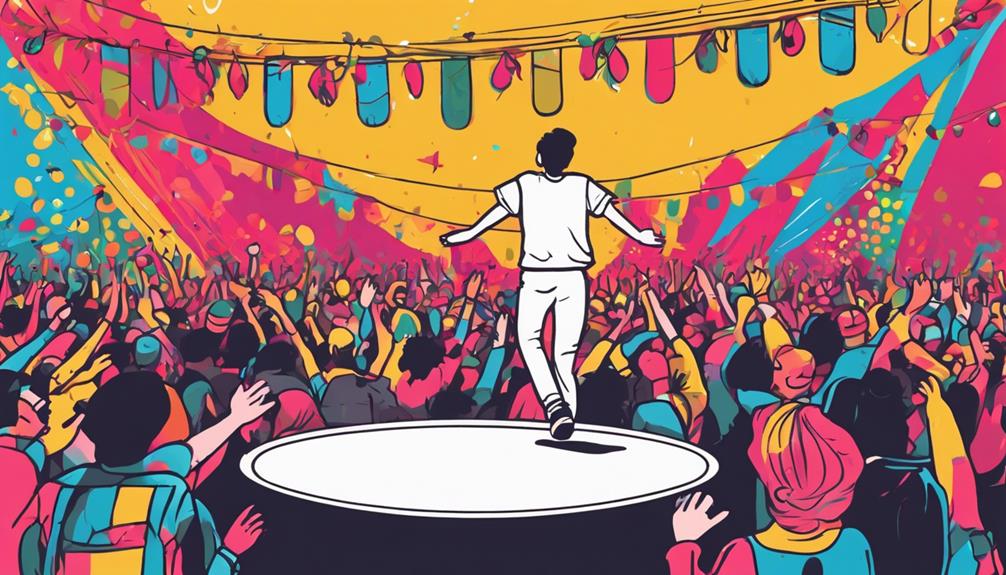
Venturing beyond familiar boundaries and embracing new challenges during festivals can catalyze personal growth and foster transformative experiences. Stepping out of comfort zones presents growth opportunities and allows individuals to discover new aspects of themselves. By trying new activities or traditions during festivals, individuals are pushed to overcome fears and embrace change, leading to an expansion of their horizons. This process of embracing discomfort can result in memorable and transformative moments that contribute to building resilience and adaptability. Pushing boundaries and exploring unfamiliar territories can lead to self-discovery, increased confidence, and a deeper understanding of one's capabilities. Through these experiences, individuals not only step out of their comfort zones but also step into a realm of self-exploration and personal development. Embracing the challenges that come with venturing into the unknown during festivals can ultimately lead to a greater sense of accomplishment and a broader perspective on life.
Nature and Festivals
In the realm of cultural celebrations, the intertwining of nature and festivals manifests through a deep-rooted connection to the changing seasons and environmental rhythms. This connection is evident in various ways:
- Nature worship, seasonal cycles: Festivals often revolve around nature worship, honoring the seasonal cycles and natural phenomena. Ancient civilizations recognized the significance of nature in sustaining life and thus celebrated it through festivals that corresponded with key seasonal changes.
- Harvest festivals, ecological connections: Traditional festivals frequently include harvest celebrations, acknowledging the ecological connections between human activities and the environment. These festivals serve as a reminder of the dependence on nature for sustenance and the importance of preserving the ecosystem for future generations.
- Rituals, offerings to nature: Many festivals involve rituals and offerings to nature as a way to show gratitude and respect. These practices highlight the belief in the interconnectedness between humans and the natural world, emphasizing the need for harmony and balance in the relationship with the environment.
Personal Reflections
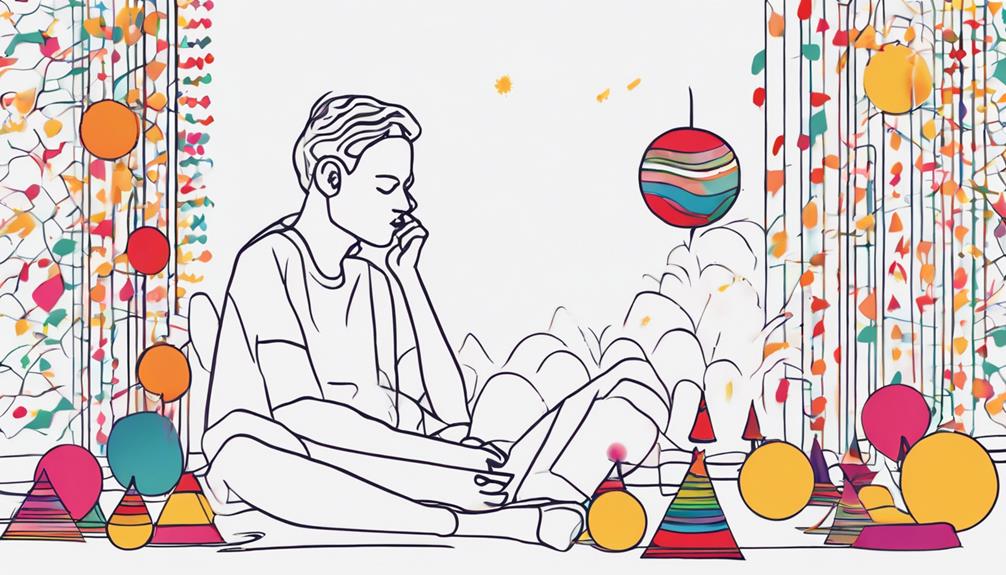
Engaging in festival celebrations offers individuals a profound opportunity for self-exploration and introspection, fostering personal growth and emotional insight. During festivals, individuals often take the time to contemplate their values, beliefs, and experiences. This period of introspection allows for self-discovery, enabling individuals to gain insights into their inner selves. By reflecting on their thoughts and emotions, people can uncover hidden aspects of their personalities and motivations. This contemplation can lead to personal development, as individuals become more aware of their strengths, weaknesses, and areas for improvement.
Furthermore, the moments of introspection during festivals provide a unique chance for individuals to connect with their emotions and understand the significance of their experiences. This process of self-reflection can be transformative, guiding individuals towards a path of personal growth and self-improvement. Through introspection and contemplation during festival celebrations, individuals can deepen their understanding of themselves and enhance their emotional intelligence.
Festivals and Happiness
The correlation between festivals and happiness is a well-documented phenomenon supported by research indicating a significant increase in overall well-being and life satisfaction among participants. Festivals play a crucial role in enhancing happiness through various mechanisms:
- Festivals and well-being, community connection: Participating in festivals fosters a sense of community and belonging, which are vital for individuals' well-being. The shared experiences and social interactions during festivals create a support network that contributes to emotional fulfillment and overall positive mental health.
- Festive traditions, emotional fulfillment: The cultural traditions and celebratory activities associated with festivals evoke strong emotional responses, leading to a sense of fulfillment and happiness. These traditions provide a sense of identity and continuity, further enhancing the emotional experience of participants.
- Joyful celebrations, happiness boost: The festive atmosphere during celebrations infuses joy and excitement, triggering a happiness boost among individuals. The collective joy experienced during festivals promotes positivity, strengthens social bonds, and generates lasting memories that contribute to overall life satisfaction.
Frequently Asked Questions
Why Do We Celebrate the Festival?
Celebrating festivals serves as a means to strengthen community bonding, preserve cultural traditions, and honor spiritual significance. Such events facilitate social cohesion through shared rituals, fostering a sense of belonging and connection among participants. Embracing cultural practices during festivals reinforces identity and heritage, while the spiritual aspects often provide individuals with a deeper sense of purpose and connection to something greater than themselves.
What Is the Purpose of Festival?
Festivals serve as vital platforms for community bonding, cultural preservation, and spiritual connection. They bring people together, fostering unity and a sense of belonging. Through celebrations, cultural heritage and traditions are expressed and preserved. Festivals strengthen social bonds, creating shared memories among participants. The purpose of festivals is multifaceted, encompassing the celebration, honoring, and commemoration of significant aspects of society, history, and spirituality.
Why Do They Do Festivals?
Festivals are a culmination of cultural traditions, fostering community bonding through joyful gatherings with religious significance. They offer a platform for shared experiences, creating a sense of belonging. Festive decorations and food feasts enhance the celebratory atmosphere, encouraging self-expression and unity among participants. Festivals serve as avenues for individuals to test their comfort zones and form strong social connections, providing opportunities for leisure, entertainment, and the celebration of heritage.
Why Do Humans Have Festivals?
Festivals have been integral to human societies across cultures for centuries. They serve as occasions for community bonding, where individuals come together to celebrate shared cultural traditions and strengthen social connections. These events provide a platform for expressing cultural identity and values, fostering a sense of unity among participants. Through festivals, people reinforce their belonging to a larger community, creating a space for collective celebration and commemoration of significant aspects of their heritage.
Conclusion
In conclusion, the celebration of festivals serves multiple purposes, including cultural preservation, community bonding, economic benefits, and personal enjoyment. The significance of festivals lies in their ability to bring people together, promote unity, and provide a sense of belonging. Despite potential objections to the commercialization of some festivals, the overall impact on society remains positive in terms of cultural exchange, social cohesion, and individual well-being.
